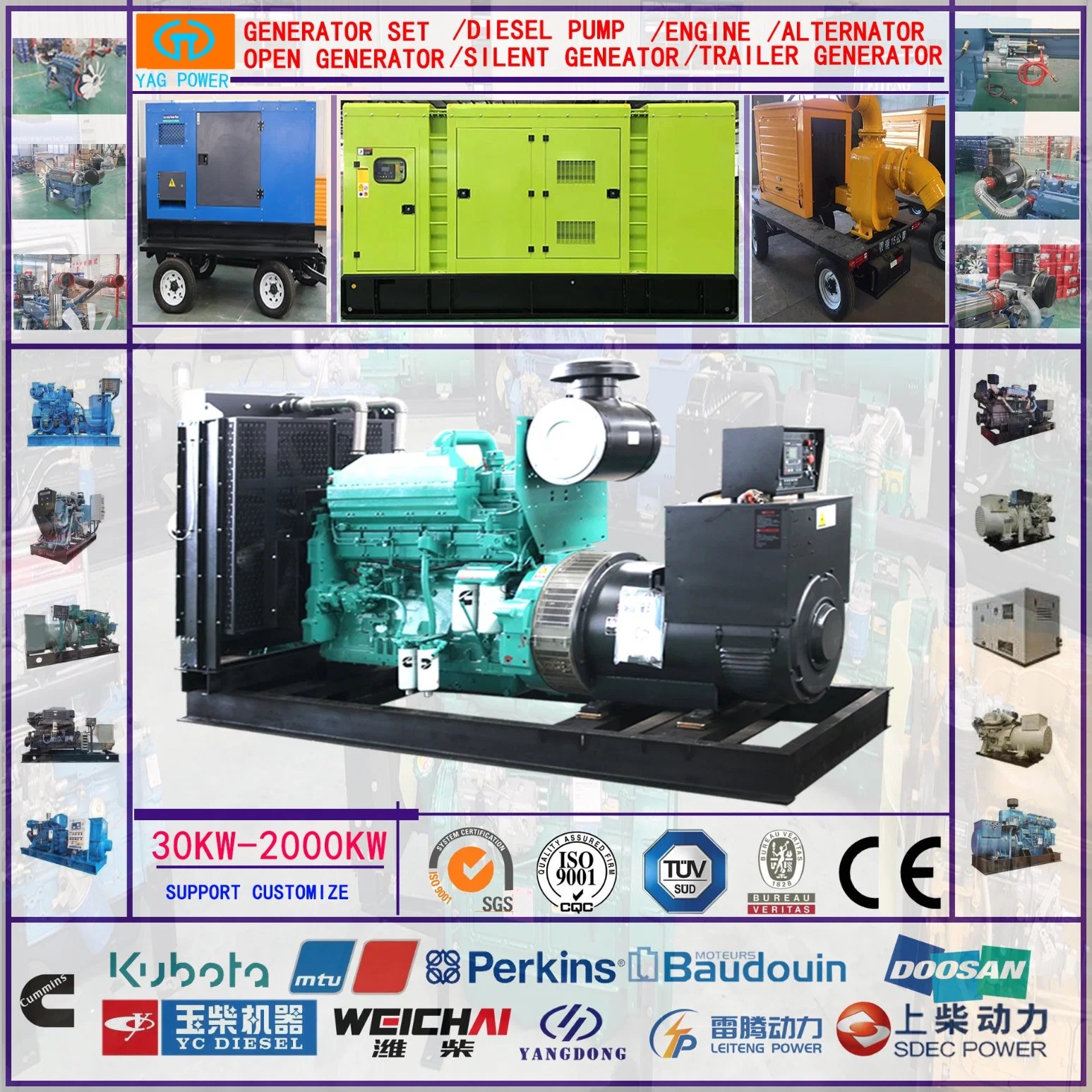Introduction
In today's fast-paced world, small businesses are constantly striving to keep operations running smoothly and efficiently. One of the key components in achieving this goal is ensuring a reliable and continuous power supply. Power outages can disrupt business operations, lead to financial losses, and impact customer satisfaction. To mitigate such risks, small businesses often turn to diesel generators as a dependable and efficient solution. In this comprehensive guide, we will explore the importance of diesel generators for small businesses and provide a detailed overview of their functionality, benefits, considerations for selection, maintenance best practices, and environmental impact.

The Importance of Diesel Generators for Small Businesses
Small businesses, like any other enterprise, rely on a steady and uninterrupted power supply to operate effectively. However, power disruptions caused by severe weather, grid failures, or other unforeseen circumstances can have a significant impact on business operations. In such instances, having a reliable backup power source becomes paramount. Diesel generators have proven to be an essential asset for small businesses, offering a dependable and cost-effective solution to keep operations running during power outages.
Functionality of Diesel Generators
Diesel generators are a type of combustion engine that converts diesel fuel into electrical energy. The core components of a diesel generator include an engine, alternator, fuel system, cooling system, and control panel. When the generator is activated, the diesel engine ignites the fuel, which powers the alternator to produce electricity. This electricity is then distributed through the generator's outlets to power electrical equipment and devices.
Benefits of Diesel Generators for Small Businesses
1. Reliability: Diesel generators are renowned for their reliability and durability. They can provide continuous power for extended periods, making them ideal for small businesses that cannot afford downtime during power outages.
2. 200kw diesel generator for remote development projects : Diesel engines are more fuel-efficient compared to gasoline engines, leading to lower fuel consumption and reduced operational costs for small businesses.
3. Longevity: Properly maintained diesel generators have a longer lifespan than other types of generators, minimizing the need for frequent replacements and saving on long-term expenses.
4. Power Output: Diesel generators are capable of producing high power outputs, making them suitable for powering a wide range of electrical devices and machinery in small business settings.
5. Quick Start-Up: Diesel generators can be quickly started and provide power within a short timeframe, ensuring minimal disruption to business operations during power outages.
Considerations for Selecting a Diesel Generator
When selecting a diesel generator for a small business, several factors need to be carefully considered to ensure optimal performance and suitability for the specific operational requirements. These considerations include:
1. Power Requirements: Assess the power demands of the business to determine the appropriate generator size and power output needed to support critical equipment and machinery during power outages.
2. Fuel Efficiency: Evaluate the fuel efficiency of different diesel generator models to minimize operational costs and ensure sustainable power generation.
3. Portability: Consider the portability and mobility of the generator, especially if the business operates in multiple locations or requires temporary power solutions.
4. Noise Levels: Take into account the noise levels produced by the generator, particularly if the business is located in a noise-sensitive environment or residential area.
5. Emissions Compliance: Verify that the diesel generator complies with environmental regulations and emissions standards to minimize its impact on the surrounding environment.
Maintenance Best Practices for Diesel Generators
Proper maintenance is essential to ensure the reliable performance and longevity of a diesel generator. Small businesses should adhere to the following best practices for diesel generator maintenance:
1. Regular Inspections: Conduct routine visual and operational inspections of the generator to identify any signs of wear, leaks, or malfunctions.
2. Fluid Checks: Monitor the levels and quality of engine oil, coolant, and fuel to ensure proper lubrication and cooling of the generator components.
3. Fuel Quality: Use high-quality diesel fuel and store it in clean, properly sealed containers to prevent contamination and degradation.
4. Battery Maintenance: Inspect and maintain the generator's battery to ensure it remains charged and capable of initiating the generator when needed.
5. Load Testing: Periodically test the generator under load conditions to verify its capacity to handle the business's power requirements.
6. Professional Servicing: Schedule regular maintenance and servicing by qualified technicians to address any mechanical or electrical issues and ensure optimal generator performance.
Environmental Impact of Diesel Generators
While diesel generators offer numerous benefits for small businesses, it is important to acknowledge their environmental impact. Diesel engines emit pollutants such as nitrogen oxides (NOx), particulate matter, and carbon monoxide, contributing to air pollution and potential health hazards. To mitigate these environmental concerns, small businesses can consider the following measures:
1. Emissions Control Systems: Invest in diesel generators equipped with advanced emissions control systems, such as catalytic converters and diesel particulate filters, to reduce harmful exhaust emissions.
2. Fuel Quality: Use ultra-low sulfur diesel (ULSD) fuel that has lower sulfur content and produces fewer emissions when burned in diesel engines.
3. Compliance with Regulations: Ensure that the diesel generator complies with local, state, and federal regulations regarding emissions standards and environmental requirements.
4. Alternative Energy Sources: Explore the integration of renewable energy sources, such as solar power or wind energy, to supplement or offset the reliance on diesel generators and minimize environmental impact.
Conclusion
In conclusion, diesel generators play a crucial role in providing reliable backup power for small businesses, ensuring continuity of operations during unforeseen power outages. Their reliability, fuel efficiency, and high power output make them a practical choice for businesses with diverse operational needs. However, it is essential for small businesses to carefully consider their specific requirements and conduct thorough research when selecting a diesel generator. Additionally, prioritizing regular maintenance and adhering to environmental regulations can help minimize the environmental impact associated with diesel generators. By leveraging the benefits of diesel generators while addressing their environmental considerations, small businesses can maintain operational resilience and contribute to sustainable energy practices.
